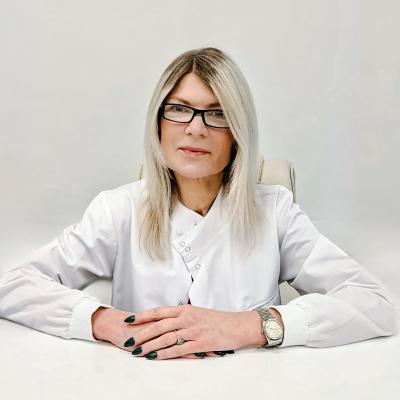Aesthetic Medicine Dr Kujawa
About specialty
Non-surgical anti-aging procedures
Aim of aesthetic medicine
Aesthetic medicine is a branch of medicine that helps improve patients’ quality of life by correcting their appearance. Aesthetic medicine procedures should be performed by physicians with the right to practice and who hold certificates of completion the appropriate training courses. These treatments are designed to slow down the aging process and to correct beauty defects using safe and minimally invasive methods.
Who can benefit from aesthetic medicine
Each of us would like to be beautiful and young for as long as possible, but aesthetic medicine is not intended for everyone. It is not about financial constraints, but rather about health and psychological factors. Patient wishing to have aesthetic medicine treatments should rely on the doctor’s opinion who knows what methods will work best in each case. Of course, the discussion is mutual, as the patient must accept this opinion. It should be remembered that treatments are not performed on people who are under the influence of alcohol or other substances affecting their awareness. It is important that the patient must have a good contact with the doctor, accept suggestions and approach the procedure voluntarily.
Consultation
Aesthetic medicine procedures are performed in our practice as an outpatient treatment. You should prepare yourself for the visit to get the maximum benefit from it. During the consultation, the doctor will want to find out what aesthetic problem brought the patient to the office. It is worth preparing photos from years ago that will help the doctor understand what the patient expects and what effect they would like to achieve.
When planning the procedure, you should come to the consultation without makeup, so that the doctor can accurately assess the condition of your skin and its possible defects. During the examination, the doctor will assess the skin's blood supply, its elasticity, the size of the pores and any visible changes.
The next step is a thorough medical history, to avoid possible problems in the future and to exclude the risk associated with the procedure. The questions will concern past diseases, including chronic ones, allergic reactions, medications, including dietary supplements, and stimulants. You should also expect questions about conditions that are contraindications for treatments, such as pregnancy, lactation, active diseases (viral, bacterial, fungal, cancer), autoimmune diseases, tendency to keloids and inflammation on the skin.
When talking to your doctor, be as honest as possible, as concealing medically important information may have a negative impact on the outcome of the procedure, and sometimes may cause complications and health problems. Based on the interview and possible additional tests, the doctor will qualify you for the procedure.
Aesthetic medicine procedures
Aesthetic medicine treatments are more invasive and are performed on deeper areas of the skin than cosmetic treatments, but they don't go as deep as plastic surgery treatments. These treatments are also less invasive and do not require hospitalisation. Performed in an outpatient environment, without the use of a scalpel, they do not require long convalescence and do not stop you from every-day duties. Although aesthetic medicine, cosmetology and plastic surgery share the same goal, the methods of achieving it are different.
The main task of aesthetic medicine is to help providing a high quality of life for healthy people by correcting imperfections, which directly affect the patient's well-being and self-esteem. Aesthetic medicine is a very extensive field, as it deals with the skin, subcutaneous tissue, but also dentition and restoration of the hormonal balance of the body.
Aesthetic medicine uses treatments that can stimulate skin to regenerate and delay the aging process. They help to eliminate aesthetic problems that affect comfort and well-being, and often improve the quality of life. These treatments are not limited to the skin of the face but are performed on the entire body.
Treatments used in aesthetic medicine allow:
• fill in wrinkles
• firm the skin
• reduce signs of age and sun discoloration
• shape the face, enlarge the lips
• remove postoperative scars and acne scars
• eliminate dark circles under the eyes
• remove warts, moles, lipomas
• firming and rejuvenating the skin
• narrow or close skin pores
• eliminate excessive sweating
Aesthetic medicine uses procedures that are performed using small incisions or punctures, which do not leave visible scares, and which are performed under local anaesthesia. These treatments use various types of chemicals such as fillers (hyaluronic acid, polylactic acid), anti wrinkle products and natural substances as the patient's platelets.

